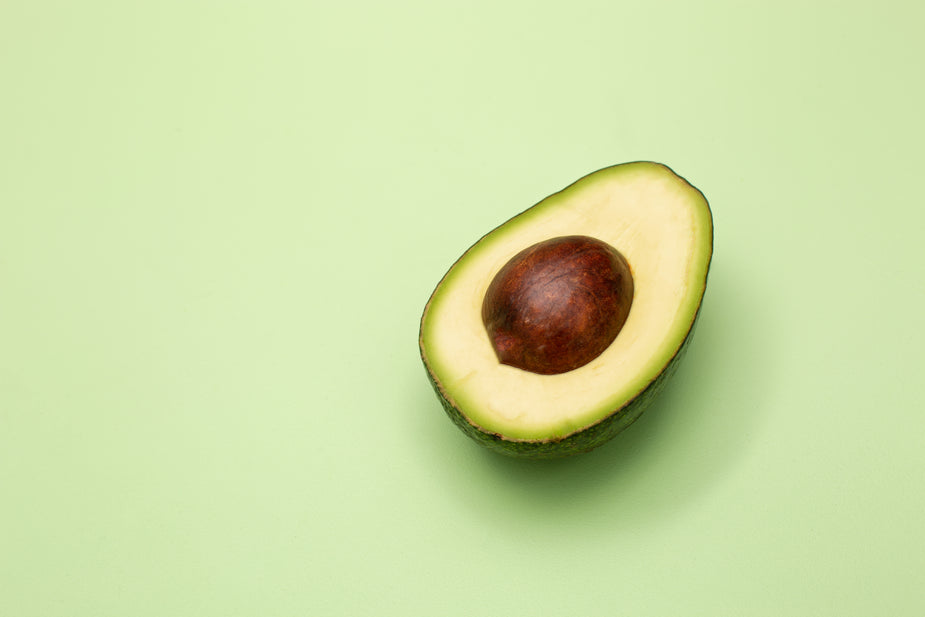Mastering Carbohydrates: Your Guide to Low Carb Living
Frequently Asked Questions
1. What are carbohydrates?
2. What is the difference between simple and complex carbohydrates?
3. How many carbohydrates should one consume daily?
4. What are some tips for low carb grocery shopping?
When embarking on a healthier lifestyle, understanding carbohydrates is key to making informed decisions about your diet. Whether you're a seasoned keto aficionado or new to low carb grocery shopping, grasping the fundamentals of carbs can help you navigate your dietary choices with confidence. In this article, we’ll break down the basics of carbohydrates, the different types, their functions in the body, and how to make the best choices for your health.
What Are Carbohydrates?
Carbohydrates are one of the three macronutrients, along with protein and fat. They serve as a primary energy source for our bodies, particularly for the brain and muscles. Carbs can be classified into two main categories: simple and complex carbohydrates.
Simple Carbohydrates
Simple carbohydrates consist of sugars that are quickly absorbed by the body, leading to a rapid spike in blood sugar levels. These include:
- Glucose
- Fructose (found in fruits)
- Sucrose (table sugar)
- Lactose (milk sugar)
While simple carbs can provide a quick energy boost, they can also contribute to weight gain and energy crashes if consumed in excess, especially from processed sources like sugary snacks and beverages.
Complex Carbohydrates
Complex carbohydrates are made up of longer chains of sugar molecules, which take longer to break down. As a result, they provide a slow and steady release of energy. Common examples include:
- Whole grains (brown rice, quinoa, oats)
- Legumes (beans, lentils)
- Vegetables (especially starchy ones like potatoes)
These foods are typically richer in vitamins, minerals, and fibre, making them a healthier choice compared to simple carbs.
Why Do We Need Carbohydrates?
Carbohydrates play several vital roles in our body, including:
- Supplying energy for daily activities and bodily functions.
- Supporting brain function and cognitive processes.
- Preserving muscle mass during weight loss.
- Regulating blood sugar levels through complex carb consumption.
However, the type of carbohydrates consumed is crucial. Excess simple carbohydrates can lead to various health issues, including obesity and diabetes, which is why many choose to engage in low carb grocery shopping.
How Many Carbohydrates Do You Need?
Carbohydrate needs vary based on lifestyle, activity level, and individual health goals. However, general guidelines suggest that carbohydrates should make up about 45-65% of total daily caloric intake for most individuals. That said, people following low carb or ketogenic diets typically consume 20-50 grams of carbs per day, focusing on high-fat and moderate-protein foods.
Understanding Net Carbs
When checking nutrition labels on products from Love Low Carb, you'll notice that, like all labels in Australia and New Zealand, fibre is listed separately from carbohydrates. This means the "carbs" shown on the packaging always represent net carbs—the digestible carbs you need to consider on a low-carb diet.
By contrast, in the USA and Canada, fibre is often included within the total carbohydrate count. Consumers there typically have to subtract the fibre from the total carbohydrate amount to calculate net carbs.
But why focus on net carbs? These digestible carbohydrates are the ones that impact blood sugar levels. Fibre, on the other hand, isn’t digested by the body and doesn’t cause any spike in blood sugar. That’s why Australian nutrition labels separate fibre and carbs.
It’s also worth noting that there are two different types of fibre: soluble and insoluble. They aren’t digested the same way, and they don’t impact nutrition identically. Keep this in mind while interpreting labels and counting carbs on products you purchase from Love Low Carb.
Choosing the Right Carbohydrates
So, how do you distinguish between the good and the bad when shopping for carbohydrates? Here are some tips for making savvy choices:
Embrace Whole Foods
Whole, unprocessed foods should form the cornerstone of your diet. This includes:
- Fresh fruits and vegetables
- Whole grains (in moderation)
- Nuts and seeds
These foods provide essential nutrients along with beneficial fibre, making them a smart choice for anyone trying to limit their carbohydrate intake.
Avoid Processed Foods
Processed foods often contain high amounts of added sugars and refined grains. Examples include:
- White bread
- Sugary cereals
- Snack bars
- Soft drinks
These foods can lead to rapid blood sugar spikes and should be limited, especially when engaging in low carb grocery shopping.
The Benefits of a Low Carb Diet
A low carb diet can offer several health benefits, including:
- Weight loss: Reducing carbohydrates can lead to decreased appetite and fewer cravings.
- Improved blood sugar control: This can be particularly beneficial for individuals with insulin resistance or diabetes.
- Increased energy levels: Many find that eating fewer carbs stabilises energy levels throughout the day.
Note: Always consult a healthcare professional before making significant dietary changes, especially if you have underlying health issues.
Common Myths About Carbohydrates
Despite their importance, misconceptions about carbohydrates abound. Let's clear up a few common myths:
Carbs Are Fattening
The idea that carbs are inherently fattening is misleading. It's essential to consider the type and quantity of carbs consumed. Whole, nutritious carbohydrates can support a healthy weight, while processed and sugary options can lead to weight gain.
All Carbs Are Bad
Not all carbohydrates are created equal. Focusing on whole, unprocessed sources while avoiding refined options allows you to benefit from the good carbs while minimising negative effects.
Low Carb Grocery Shopping: Tips and Tricks
When it comes to low carb grocery shopping, having a strategic approach can help streamline your efforts and ensure you stock up on the right items. Here are some handy tips to consider:
Make a List
Before heading to the store, create a detailed shopping list that focuses on low carb options. This will keep your spending in check and prevent impulse buys that could undermine your goals.
Shop the Perimeter of the Store
Most grocery stores have fresh produce, meats, and dairy products lining the outer walls. Stick to these sections, as these are typically where whole foods reside, reducing the temptation to buy processed items found in the middle aisles.
Read Labels
Become label-savvy! Pay attention to the carbohydrate content, serving sizes, and ingredients listed. Choose products with fewer and simpler ingredients to ensure you’re making healthier choices.
Recipes to Elevate Your Low Carb Routine
Incorporating delicious low carb recipes into your meal plan can make all the difference. Here are a few easy and crowd-pleasing ideas:
Zucchini Noodles
Swap traditional pasta for zucchini noodles, often called “zoodles.” They can easily be paired with your favourite sauces for a healthy twist on classic dishes.
Cauliflower Rice
A versatile alternative to rice, cauliflower rice can be made at home or purchased pre-riced. It serves as an excellent base for stir-fries and curries.
Egg-Based Dishes
Eggs are an excellent source of protein and can be prepared in various ways. Try omelettes loaded with vegetables or baked egg muffins for a quick breakfast option.
Your Next Steps Towards Carb Awareness
Becoming comfortable with your carbohydrate choices is a journey that takes time and education. By understanding the basics of carbohydrates, learning to read labels, and focusing on whole foods during your low carb grocery shopping adventures, you'll be well on your way to making healthier dietary choices.
Remember, knowledge is power. Equip yourself with the information necessary to navigate the world of carbohydrates and create a balanced approach to your low carb lifestyle. With the right strategies and resources, you can embark on this journey with confidence and excitement!




